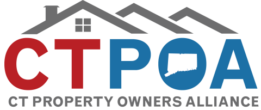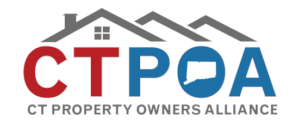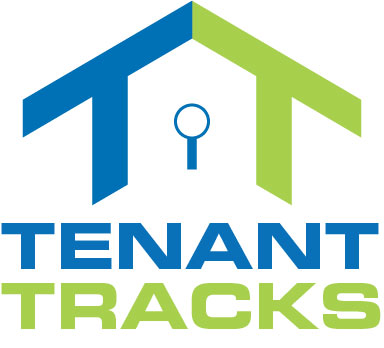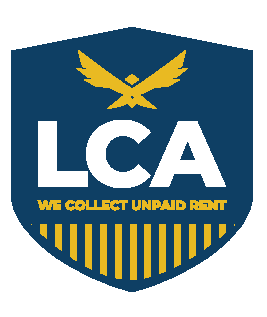The Section 8 Housing Choice Voucher Program, is a federally funded initiative administered locally by Public Housing Agencies (PHAs) across the United States. The program is also administered by private contractors hired by the State to run the programs in cities without Housing Authorities.
This program helps low-income individuals and families find decent, safe, and affordable housing in the private market by providing rental assistance payments directly to landlords. As a landlord in Connecticut, understanding the Section 8 program can offer you access to a wider pool of qualified tenants while contributing to your community’s well-being. The program is also considered a “Lawful Source of Income” and renters with program vouchers are a protected class under Connecticut’s Fair Housing Laws.
Do landlords in CT have to accept Section 8?
While not universally required at the federal level, in Connecticut, landlords are legally obligated to accept Section 8 tenant applicants to apply for their units.
Specifically, Connecticut’s Fair Housing Center (CFHC) states that landlords are obligated to accept Section 8 vouchers if:
- The rental unit meets Housing Quality Standards (HQS): This means the unit must be safe, decent,and sanitary.
- The rent is reasonable: The rent charged to Section 8 tenants must be comparable to similar units in the area.
- The landlord does not have a legitimate reason for rejecting the tenant: This means the landlord cannot reject the tenant based on their participation in the Section 8 program or any other discriminatory factor.
- However landlords can screen applicants and tenants with Section-8 certificates are not screened by the agencies for being good tenants, just to determine if they are eligible for the voucher program,…LANDLORDS MUST SCREEN SECTION-8 TENANT APPLICANTS to check if they are a good risk to put in their property.
Benefits of Participating in Section 8:
- Guaranteed rent payments: The PHA will directly pay a large portion of your tenant’s rent, ensuring timely and reliable income.
- Reduced risk of vacancy: Section 8 tenants are often highly motivated to maintain their tenancy and comply with lease terms, leading to longer tenancy periods and less vacancy downtime.
- Increased market reach: Participating in Section 8 expands your potential tenant pool by including low-income individuals and families who may not otherwise be able to afford your rental unit.
Program Requirements and Responsibilities:
- Unit Inspections: Participating units must meet the program’s Housing Quality Standards (HQS) to ensure they are safe, decent, and sanitary. PHAs will conduct inspections before and during the tenancy.
- Rent Reasonableness: Rents charged to Section 8 tenants must be deemed reasonable by the PHA based on fair market rents in your area. These “Fair Market Rents” are published on the HUD website and updated annually.
- Tenant Selection: You have the right to screen and select tenants who meet your leasing criteria
- Lease Agreement: You must enter into a standard lease agreement with your tenant, outlining the terms and conditions of the tenancy.
- Reporting: You are responsible for reporting any changes in rent, tenant income, or unit condition to the PHA.
How to Participate in Section 8:
- Contact your local PHA: You can find contact information for your local PHA on the Connecticut Department of Housing website or by calling the HUD Hartford office at (860) 240-4800.
- Register your property: Complete the PHA’s property registration form and provide necessary documentation, including proof of ownership and insurance, rent history, and unit inspection reports.
- Undergo a property inspection: A PHA representative will inspect your unit to ensure it meets HQS standards. If the unit fails inspection, the tenant can not move in until it has been re-inspected and passes
- Receive tenant applications: Once approved, the PHA will refer eligible Section 8 voucher holders to you.
- Screen and select tenants: Review applications and select tenants who meet your leasing criteria and are approved by the PHA.
- Enter into a lease agreement: Sign a standard lease agreement with your chosen tenant and submit a copy to the PHA.
Tenant Requirements:
- Income Eligibility: Tenants must meet income eligibility requirements based on their household size and income. The PHA will verify income through various means like pay stubs, tax returns, and bank statements.
- Criminal Background Checks: The PHA will conduct criminal background checks on all adult household members. Certain offenses may disqualify a tenant from participation but these are limited in scope.
- Credit History: The PHA may review credit reports as part of the screening process, but adverse credit history alone doesn’t automatically disqualify applicants.
- Eviction History: Past evictions may be considered in the screening process, but the severity and circumstances will be evaluated.
- Family Composition: The PHA will verify the household composition and ensure it complies with occupancy standards.
Screening Process:
- Landlord Screening: You have the right to screen applicants based on your own criteria, including rental history, creditworthiness, income verification, and references. We recommend a trustworthy screening platform like TenantTracks.
- PHA Screening: The PHA will conduct their own screening process, including income verification, criminal background checks, and verification of family composition to determine if the tenant is eligible for the program.
- Joint Approval: Both you and the PHA must approve a tenant before they can move into your unit.
Rejection Options:
- Failure to Meet Eligibility Requirements: If a tenant doesn’t meet the PHA’s income or other eligibility criteria, you can reject their application.
- Negative Screening Results: If your own screening reveals red flags, such as a history of evictions or damage to previous rentals, you can reject the application.
- Unfavorable Lease Terms: You are not obligated to accept any tenant you don’t feel comfortable with, even if they are approved by the PHA. You can reject the application if you don’t agree with the proposed lease terms.
- Your rent is higher than the rent the program will pay. Tenants can not pay more for a rent than the limit of the HUD Fair Market Rent, any side payments over the Fair Market rents are not allowed and the tenant may be kicked off the program for doing so.
Additional Considerations:
- Reasonable Accommodation: As a landlord, you are obligated to provide reasonable accommodation to tenants with disabilities.
- Lead-Based Paint: You are responsible for ensuring your rental unit is free of lead-based paint hazards. (CTPOA has a webinar on its website on lead paint that its members can watch). If a Section-8 child under the age of 6 has an elevated blood lead level of 5 micrograms or more, the landlord has 30 days to remediate the lead from the unit or the Section-8 rental payment is cut-off.
- Fair Housing Laws: You must comply with all fair housing laws and avoid discrimination based on race, religion, color, national origin, sex, disability, or familial status.
- Grievance Process: Both tenants and landlords have access to a grievance process if they have any unresolved issues related to the program.
Can you raise rent on Section 8 in CT?
Yes, landlords can raise rent on Section 8 units in CT, but there are specific regulations and procedures that must be followed. Here’s what you need to know:
Rent Increase Guidelines:
- After the initial 12-month contract: Landlords can request rent increases after the initial 12 months of the HAP (Housing Assistance Payment) contract.
- Frequency: Rent increases can only be requested once every lease year.
- Reasonableness: The proposed rent increase must be reasonable and comparable to similar units in the area.
- Notice: Landlords must provide written notice to both the tenant and the local Public Housing Authority (PHA) at least 60 days before the proposed rent increase date.
- PHA Approval: The PHA will review the proposed rent increase and determine if it is approved. The PHA considers factors like the condition of the unit, rental market trends, and tenant income.
Procedures for Rent Increases:
- Landlords must use the Rent Increase form provided by the local PHA.
- The form should include the following information:
- Landlord’s name and contact information
- Tenant’s name and unit address
- Current rent
- Proposed rent increase amount
- Effective date of the rent increase
- The landlord must submit a copy of the completed form to both the tenant and the local PHA.
- The tenant has the right to appeal the rent increase to the PHA.
Section 8 can be an overwhelming and confusing part of owning and renting an investment property in Connecticut. Luckily, there are many resources to support you and answer your questions.
Additional Resources:
- Connecticut Department of Housing – Section 8 Housing Choice Voucher Program:https://portal.ct.gov/DOH/DOH/Programs/Section-8-Housing-Choice-Voucher-Program
- HUD User: https://www.huduser.gov/portal/home.html
- Connecticut Fair Housing Center: https://ctfairhousing.org/








